
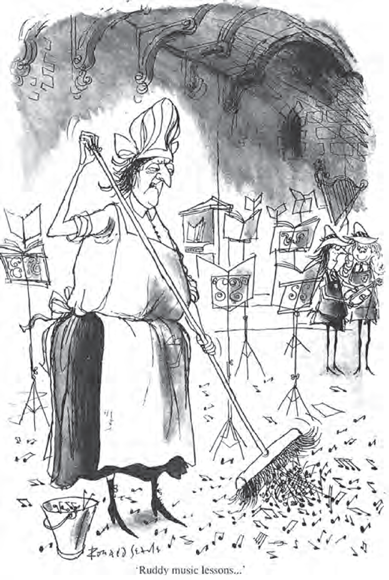
MUSIC

Nicholas Cook


New York / London
www.sterlingpublishing.com
STERLING and the distinctive Sterling logo are registered trademarks of Sterling Publishing Co., Inc.
Library of Congress Cataloging-in-Publication Data
Cook, Nicholas, 1950
Music: a brief insight / Nicholas Cook.
p. cm.
ISBN 978-1-4072-7535-2
1. MusicSocial aspects. 2. Popular music and art music. 3. MusicHistory and criticism. 4. MusicPhilosophy and aesthetics. 1. Title.
ML3916.C665 2010
780dc22
2010008016
10 9 8 7 6 5 4 3 2 1
Published by Sterling Publishing Co., Inc.
387 Park Avenue South, New York, NY 10016
Published by arrangement with Oxford University Press, Inc.
1998 by Nicholas Cook
Illustrated edition published in 2010 by Sterling Publishing Co., Inc.
Additional text 2010 Sterling Publishing Co., Inc.
Distributed in Canada by Sterling Publishing
c/o Canadian Manda Group, 165 Dufferin Street
Toronto, Ontario, Canada M6K 3H6
Book design: FaceoutStudio
Please see picture credits on page 179 for image copyright information.
Printed in China
All rights reserved
Sterling ISBN 978-1-4027-7535-2
For information about custom editions, special sales, premium and corporate purchases, please contact Sterling Special Sales Department at 800-805-5489 or .
Frontispiece: This cartoon by Ronald Searle, from a series of books documenting the fictional girls boarding school St. Trinians, demonstrates what happens when a piece of music is over. The complex relationship between the experience of music on the one hand and its signs and symbols on the other speaks to the evanescent nature of music itself.
CONTENTS
ON AUGUST 31, 1997, the finals of the Mercury Music Prize were televised. The nominations included Suede, Mark Anthony Turnage, the Chemical Brothers, and John Tavener. And what is so remarkable about that? Just that only a few years earlier it would have been unusual for classical composers like Turnage and Tavener to appear on the same stage as pop groups like Suede and the Chemical Brothers, and inconceivable for them to be judged against one another. (The winners, though, were Roni Size and the Reprazent Collective, well known in the Bristol jungle scene.) But then, it was just a week later that Taveners Song for Athene featured alongside Elton (now Sir Elton) Johns; rendition of Candle in the Wind at Princess Dianas; funeral. And the following month (Sir) Paul McCartneys; choral and orchestral composition Standing Stone received its premire in Londons; Royal Albert Hall. Meanwhile, on the other side of the Atlantic, doctoral students are already writing dissertations on the work of Frank Zappa, which ranged from acid rock to classical concert music. Everywhere the barriers that once kept different styles and traditions of music firmly apart are crumbling.
Its; an obvious fact that the world is teeming with different kinds of music: traditional, folk, classical, jazz, rock, pop, world, just to name a few. This has always been the case, but modern communications and sound reproduction technology have made musical pluralism part of everyday life. (You can hear this every time you walk through a shopping mall.) And yet the ways we think about music dont; reflect this. Each type of music comes with its own way of thinking about music, as if it were the only way of thinking about music (and the only music to think about). In particular, the way of thinking about music that is built into schools and universitiesand most books about music, for that matterreflects the way music was in nineteenthcentury Europe rather than the way it is today, anywhere. The result is a kind of credibility gap between music and how we think about it.
In this short book I want to put all music on the map. Or rather, given that it is a very short book, I want to spread out a map that all music could in principle be put on to, if only there were space for it. And this has a clear knock-on effect in terms of what this book isnt;. What it isnt; is an ABC of music, providing a potted summary of the so-called rudiments (staves, clefs, scales, chords, and the rest) followed by a quick romp through the repertory. The reason it cant; be an ABC of music is that it would have to be not just an ABC but an AB and
and  , and an
, and an  , not to mention an
, not to mention an  . If you can sensibly talk about music having an alphabet at all, then every music has its own alphabet. Seen that way, every music would need its own short book.
. If you can sensibly talk about music having an alphabet at all, then every music has its own alphabet. Seen that way, every music would need its own short book.
Every music is different, but every music is music, too. There is a level at which you can talk of music (and I can write this book), but it isnt; the ABC level. To talk about music in general is to talk about what music meansand more basically, how it is (how it can be) that music operates as an agent of meaning. For music isnt; just something nice to listen to. On the contrary, its; deeply embedded in human culture (just as there isnt; a culture that doesnt; have language, so there isnt; one that doesnt; have music). Music somehow seems to be natural, to exist as something apartand yet it is suffused with human values, with our sense of what is good or bad, right or wrong. Music doesnt; just happen, it is what we make it, and what we make of it. People think through music, decide who they are through it, express themselves through it.
So this book is as much about thinking about music as it is about music. And it is also about the social and institutional structures that condition thinking about music. The book begins with an individual, domestic response to musicwith a television commercial, and the different associations and connotations that give it meaningand ends with a snapshot of how people are thinking, and writing, about music in todays; academic world. (As George Miller, my editor at Oxford University Press, put it, it is at this point that a gang of musicologists turn up and take over.) In focusing the final chapter on issues of music and gender, I dont; want to give the impression that musicologists have sex on the brain. But there has long been an academic tradition of thinking of music as purely musical, as being about nothing but itself, which has created a general impression among everyone except musicologists that in that case music cant; matter very much. More than anything, it is the study of music and gender that has put musics; worldly meaning back on the musicological map and so led musicology, in a word, out of the closet.
And of course, music does matter; if I didnt; believe it, I wouldnt; have written this book, and if you didnt; believe it, you wouldnt; be reading this sentence. Rather than being something apart, music is in the very midst of things. In fact it is less a something than a way of knowing the world, away of being ourselvesthough, as I shall explain in , the metaphor of music being a kind of object is built deep into its history. You might almost say that music isnt; a something until, by thinking and writing about it, we turn it into one. If that sounds a bit paradoxical, the reason is that it

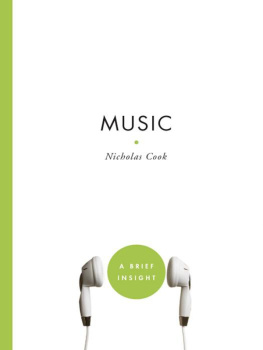
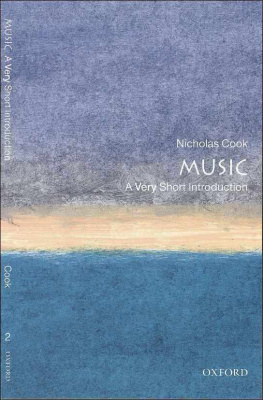
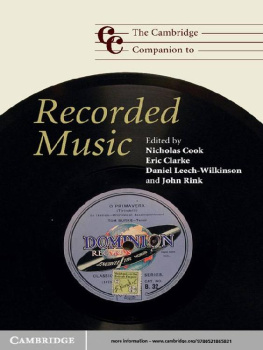
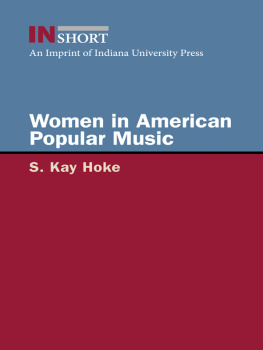

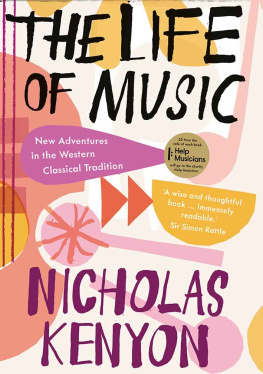
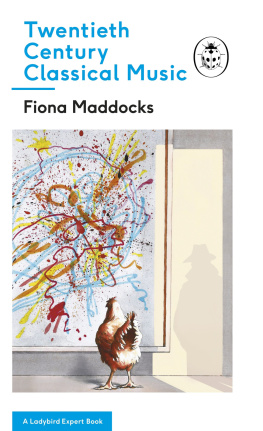
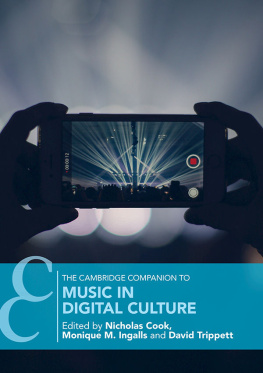
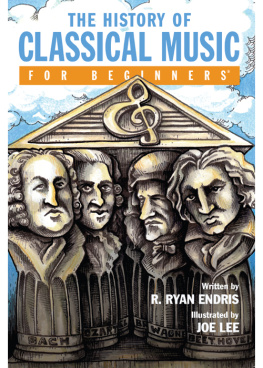
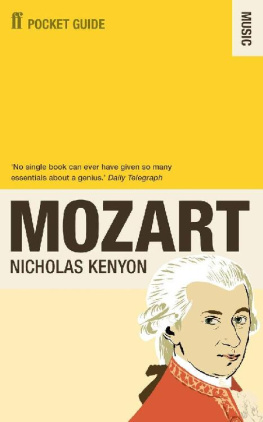
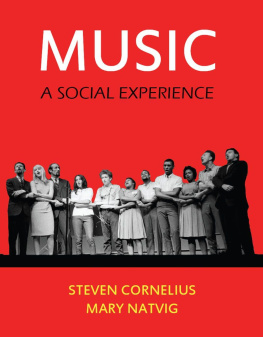






 and
and  , and an
, and an  , not to mention an
, not to mention an  . If you can sensibly talk about music having an alphabet at all, then every music has its own alphabet. Seen that way, every music would need its own short book.
. If you can sensibly talk about music having an alphabet at all, then every music has its own alphabet. Seen that way, every music would need its own short book.